Notes from Preparation and Rehearsals
From terror to transformation: Reverie rehearsals have begun. A journey of instinct, collaboration, and a simple orange.
reverie /ˈrɛv(ə)ri/ noun
a state of being pleasantly lost in one's thoughts; a daydream. "a knock on the door broke her reverie"
Similar: daydream, trance, muse
When I first opened the script sent to me by Joanna Holland, writer and creator of Reverie, I was thankfully sitting opposite my mum. As I read the piece to my mum aloud in an empty carriage, I simultaneously had a look of terror on my face and not only because the piece is terrific (it is).
“How am I going to learn all of these lines?”
My mum helped me pick my jaw up from off the table supporting my laptop and convinced me that she knew I had it in me. I had of course read the piece before saying yes but there’s a blissful I can do anything I put my mind to confidence that takes charge in the audition or roles acquisition phase before the real work begins.
It’s the same confidence that had me convince Alex J Withers, the director of Butterfly that I can of course swim butterfly stroke to a competitive level. I can, and I did, and I worked hard every, single, day in my local swimming pool with the support of a swimming coach to do so.
After all, one of the reasons I am an actor is because of the ways that it stretches and strengthens me as an artist and human being. And now, my memory is being asked to step centre stage and learn 7 pages off by heart.
When it came to learning the lines, I remembered my classes with Alice Bird and Dan Benzenou. They intentionally instructed us to not learn the lines prior to the 4 day workshop. When it comes to learning lines, they taught me that when the writing is good, all you have to focus on is engaging with the context of the piece, the writing will do the heavy lifting and the story will connect with your body, mind and memory and your impulses will guide you. Sometimes even by day 2 of their workshop I found myself already knowing the next line because I was engaged with the character and the words bubbled up in my mind and became instinctive.
We didn’t initially know what our rehearsal plan would look like and I think this might have been down to the fact that our director Stéphanie Joalland wasn’t so sure as to how familiar I’d be with the piece at this stage. Perhaps blocking through with the text in hand might have been a consideration.
But I’m pleased to say that by the time our first rehearsal came, I was pretty much off book. This was the result of going over the piece multiple times (every day). I realise that for me, it’s critical to have someone else reading with me so that I can build the images of the text in my head and detach myself from looking at the page. I worked hard to bridge the connection between thoughts in my mind which paid off as the transitions began to reveal themselves one after another. The clearer and more vivid the scenes, the objects, the intention behind the words, the quicker they appeared and remained in my memory. For each of the objects and locations, I used images that I’d found on Pinterest and Google to ground my sense of them. Now when I’m describing the wardrobe for example, I really can see the walnut wardrobe with all of its burrs.
Be off book before rehearsal. Then you can really play. I felt empowered to learn my lines. Typically, I have felt intimidated - and I certainly did on the train (on cue) before I learned this script. But a huge sense of power began to reveal itself the more I was able to absorb. I also felt that I had earned the respect of both writer and director and was in a position to talk with authority about the piece - it was all inside of me.
In terms of character, by engaging with the words, I felt the character come through me. I didn’t add any additional layers to the piece, I just let the words unlock what they unlocked in me.
Who am I speaking with? Where are we? These were game-changers for the delivery because it went from the generic to the specific.
Memory can reveal any the issues with text and any disconnect between the lines. It wasn’t because of my memory - because most of it rolled off my tongue. The images would come to me, moment to moment. But sometimes the images didn’t show up in my mind. Stéphanie would politely pause the rehearsal and would say “thank you, that was great” and go on to investigate what she thought might have been missing from the text. Was there a line missing? What was the reason for the current line? Did that need to be further expressed or elaborated on or was the line in the right place? Did it need to be swapped around or reordered? Sometimes it was because two ideas or thoughts were being simultaneously expressed within the same section but made more sense once the play was lifted off the page to separate the thoughts and subjects. Occasionally a line was removed because it could be expressed through an action or intention which influenced the delivery of the line.
Throwing an orange between us whilst I recited my lines had a transformative effect on the piece. I was no longer self-consciously directing my “performance” but became more connected to the content of what I was saying, as I focused on catching and throwing the orange. I felt the piece become so much more alive. Maybe it was the threat of dropping the orange, or the stakes feeling somewhat raised, or that the orange became a conversation piece. The throwing of the orange became synonymous with the intention behind our conversation. Like I was throwing my points across to Stéphanie as she was non-verbally responding to me. It also made the monologue become a duologue - even though I was the only character speaking. This feeling of speaking directly with someone else stayed with me and will continue to do so. It physically engaged me, kept my energy up and brought an aliveness to what I was saying.
Following my instincts.
Typically when an actor forgets their lines, we can fold inside ourselves, even punish ourselves at our inability to learn the lines correctly. However, what this way of working has taught us is that actually, an actor’s instincts can guide the writing process. If I am repeatedly stumbling at the same line, let’s investigate why. I also - without thinking- followed my instincts to move. On one line, I sat down - without even realising why. We examined the movement after we had finished running the scene and realised that my subconscious was guiding us - and luckily we were open enough and comfortable enough as a collaborative to embrace it. A strength and reassurance.
Motivated movements. If in doubt, stay still.
When we talk about emotional subjects, like when we’re drunk we do our best to look sober, we often underplay our feelings (even when they are there are present). Don’t indulge in the emotions, underplay them. Go against the feeling.
This role is my most challenging stage role to date and I am so excited about the opportunity to hold this space for our audience. The play will be approximately 30 minutes in length and it’s a dreamlike monologue with my character. It’s set in a grand hall of an abandoned manor house, ‘Reverie’ tells the story of a young woman whose unorthodox friendship lifts her from melancholia, only to take a sinister turn. As comfort turns to claustrophobia and trust to terror, she finds herself ensnared in a nightmarish scenario.
There’s a lovely serendipitous story about seeing Isabelle Huppert in What Mary Said at the Barbican which inspired me to realise what is humanly possible. I will write about this in an upcoming post.
Here’s to believing in our potential and creating work that inspires us to step into the unknown!
Book tickets for Reverie on 30th March 2025 at Cambridge Junction here.



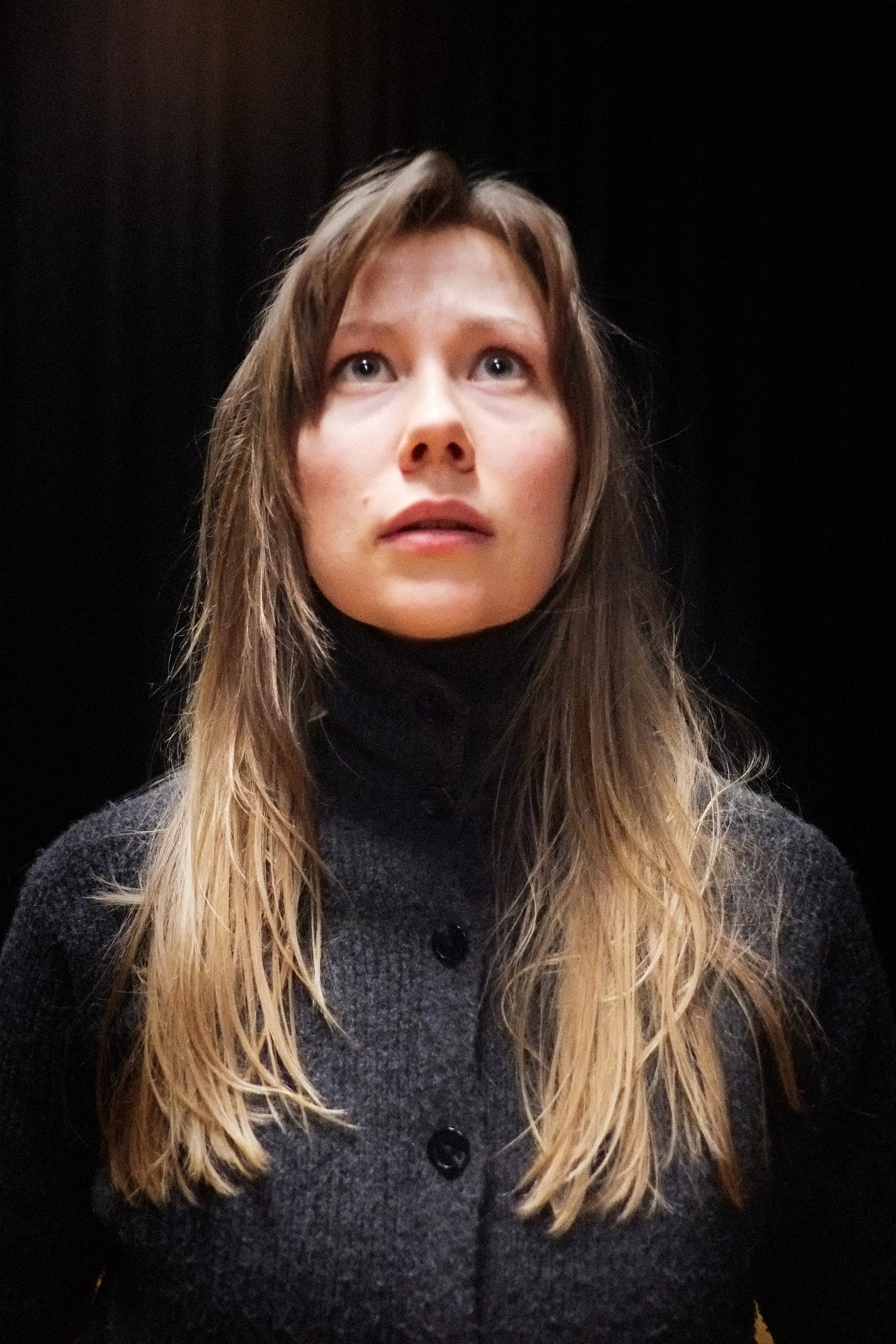
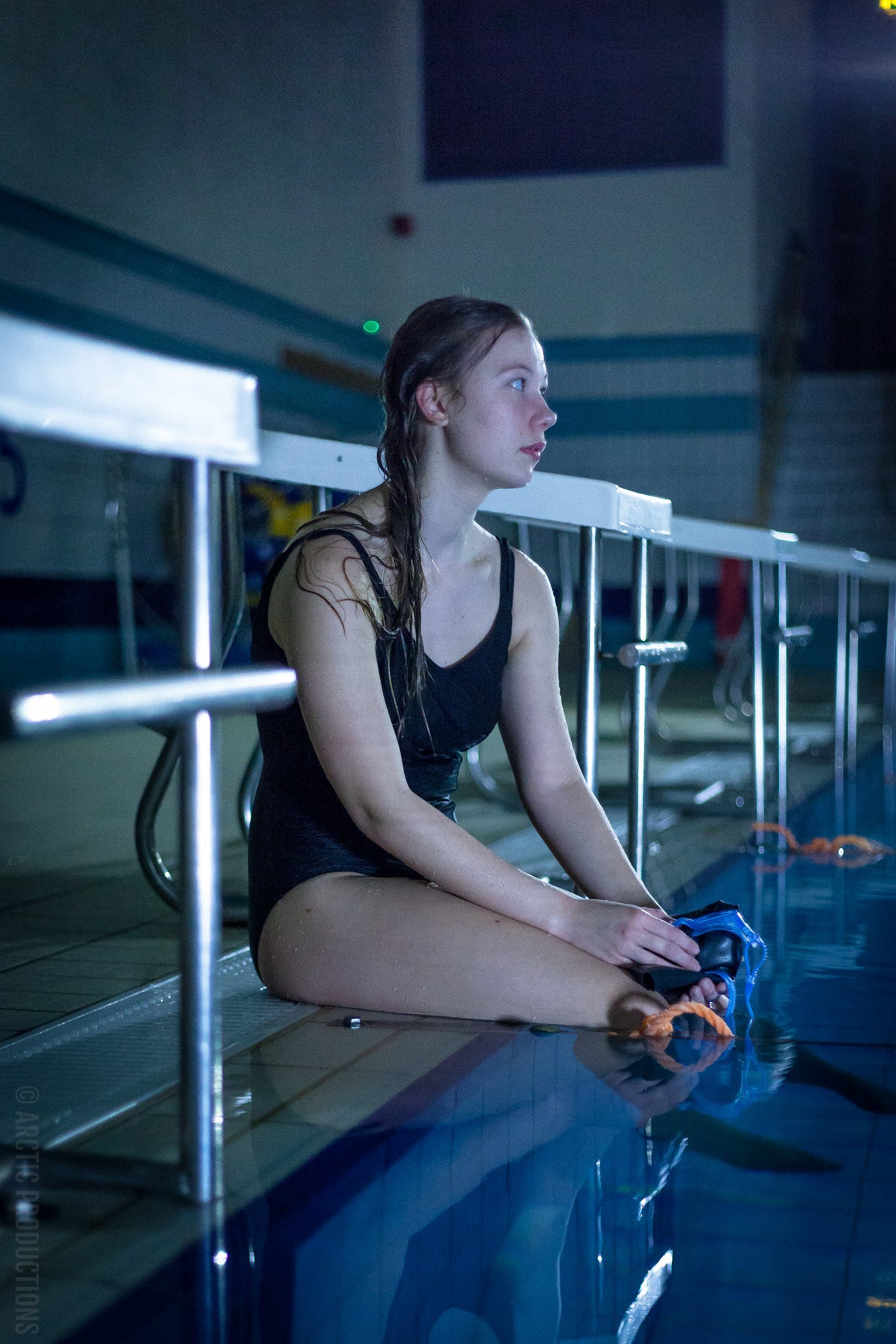
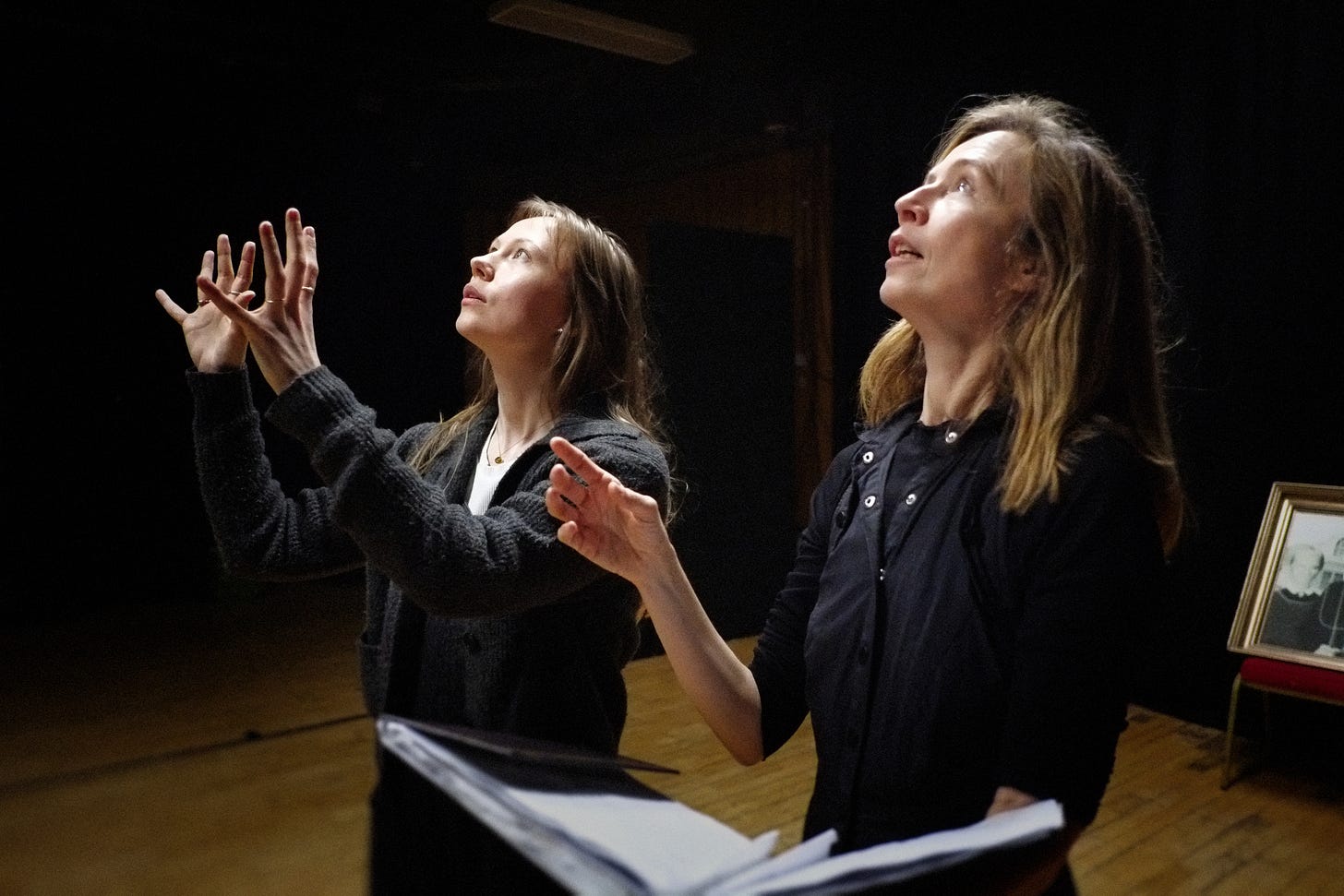
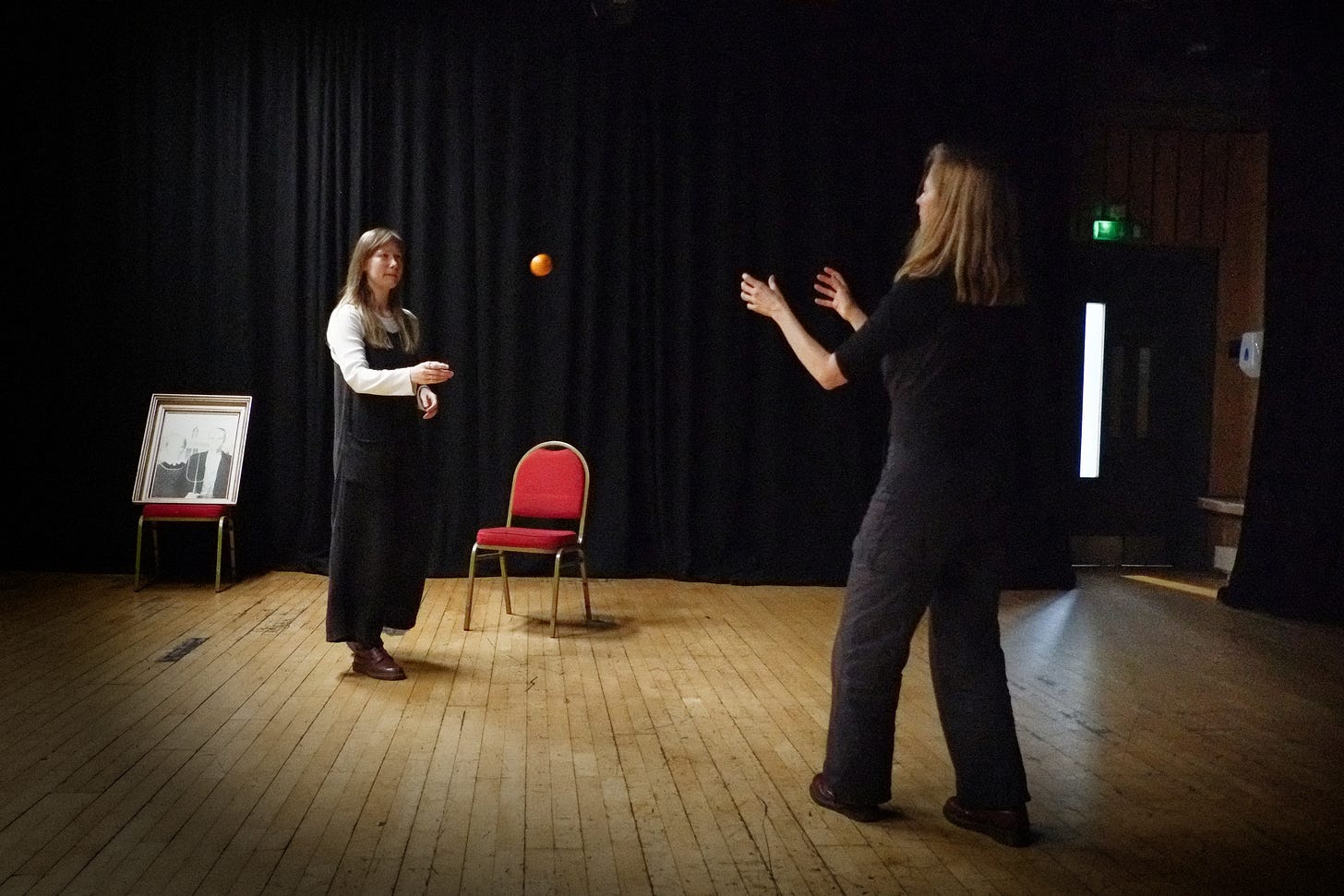
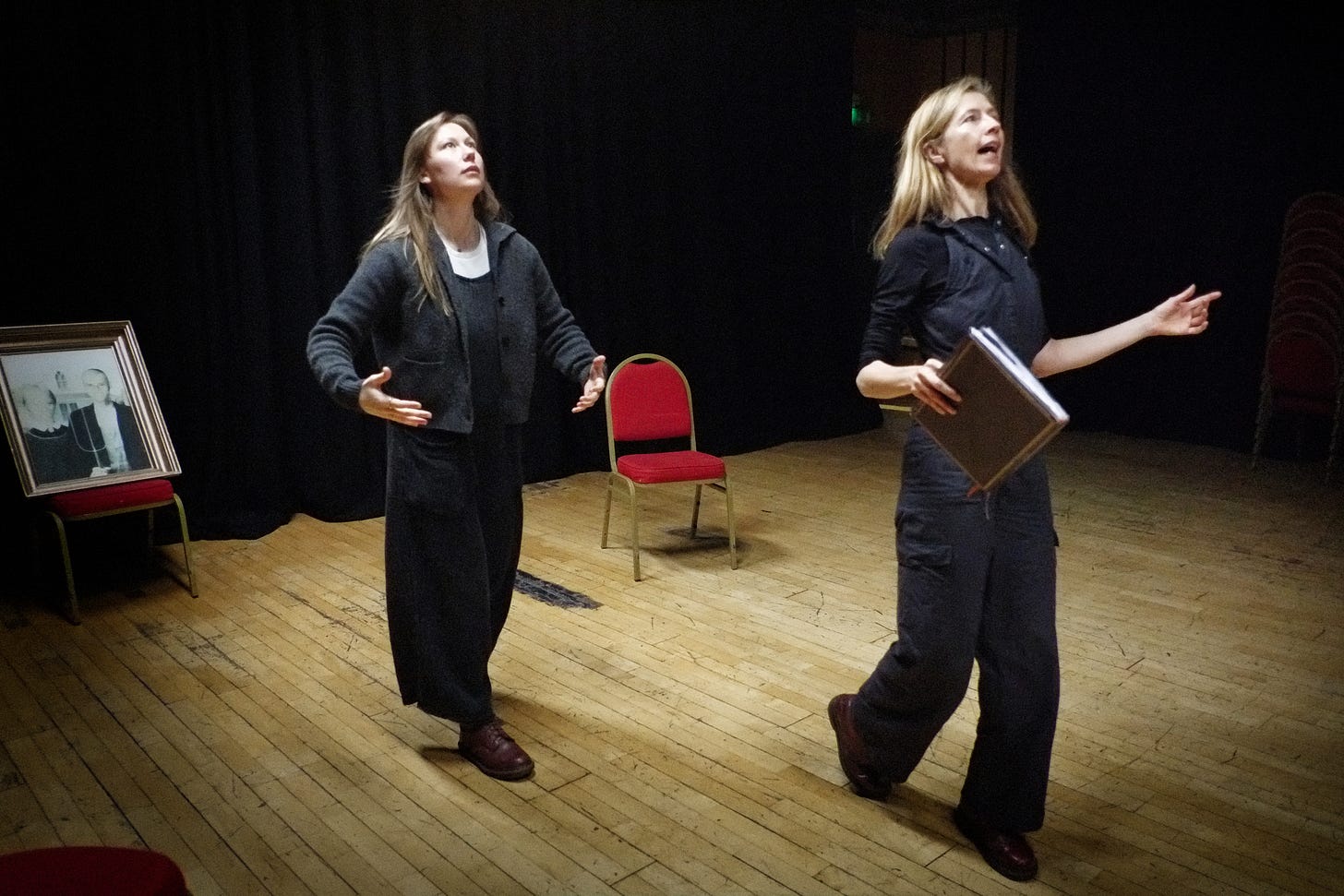
👏👏👏
I enjoyed your workshop at Cambridge last week, and this piece has just opened my eyes as to what an actor experiences when reading lines and preparing them. Thank you for sharing what goes on behind the scenes. I reckon this will help me write better lines for the upcoming assignment too.